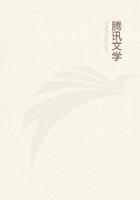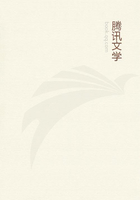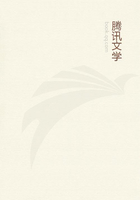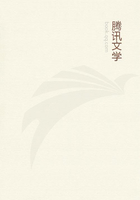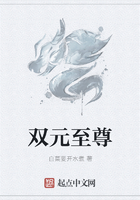Hartland takes the myth of a tribe where Daramulun is "the evil spirit who rules the night," and introduces it as an argument against the belief of a distant tribe, where, by Mr. Howitt's account, Daramulun is not an evil spirit, but "the master" of all, whose abode is above the sky, and to whom are attributed powers of omnipotence and omnipresence, or, at any rate, the power "to do anything and to go anywhere. . . . To his direct ordinances are attributed the social and moral laws of the community." This is not "an evil spirit"! When Mr. Hartland goes for scandals to a remote tribe of a different creed that he may discredit the creed of the Coast Murring, he might as well attribute to the Free Kirk "the errors of Rome". But Mr. Hartland does it! Being "cunning of fence" he may reply that I also spoke loosely of Wiraijuri and Coast Murring as, indifferently, Daramulunites. I did, and I was wrong, and my critic ought not to accept but to expose my error.
The Wiraijuri Daramulun, who was annihilated, yet who is "an evil spirit that rules the night," is not the Murring guardian and founder of recognised ethics.
J. A. I., xxv. p. 297.
Ibid., May, 1895, p. 419.
Ibid.
Ibid., xiii. pp. 458, 459.
Folk-Lore, ix., No. iv., p. 299.
But, in the Wiraijuri mysteries, the master, Baiame, deceives the women as to the Mysteries! Shocking to US, but to deceive the women as to these arcana, is, to the Australian mind in general, necessary for the safety of the world. Moreover, we have heard of a lying spirit sent to deceive prophets in a much higher creed.
Finally, in a myth of the Mystery of the Wiraijuri, Baiame is not omniscient. Indeed, even civilised races cannot keep on the level of these religious conceptions, and not to keep on that level is--mythology. Apollo, in the hymn to Hermes, sung on a sacred occasion, needs to ask an old vine-dresser for intelligence.
Hyperion "sees all and hears all," but needs to be informed, by his daughters, of the slaughter of his kine. The Lord, in the Book of Job, has to ask Satan, "Whence comest thou?" Now for the sake of dramatic effect, now from pure inability to live on the level of his highest thought, man mythologises and anthropomorphises, in Greece or Israel, as in Australia.
It does not follow that there is "nothing sacred" in his religion.
Mr. Hartland offers me a case in point. In Mrs. Langloh Parker's Australian Legendary Tales (pp. 11, 94), are myths of low adventures of Baiame. In her More Australian Legendary Tales (pp.
84-99), is a very poetical and charming aspect of the Baiame belief. Mr. Hartland says that I will "seek to put" the first set of stories out of court, as "a kind of joke with no sacredness about it". Not I, but the Noongahburrah tribe themselves make this essential distinction. Mrs. Langloh Parker says: "The former series" (with the low Baiame myths) "were all such legends as are told to the black picaninnies; among the present are some they would not be allowed to hear, touching as they do on sacred things, taboo to the young". The blacks draw the line which I am said to seek to draw.
More Legendary Tales, p. xv.
In yet another case grotesque hunting adventures of Baiame are told in the mysteries, and illustrated by the sacred temporary representations in raised earth. I did not know it; I merely followed Mr. Howitt. But I do not doubt it. My reply is, that there was "something sacred" in Greek mysteries, something purifying, ennobling, consoling. For this Lobeck has collected (and disparaged) the evidence of Pindar, Sophocles, Cicero and many others, while even Aristophanes, as Prof. Campbell remarks, says:
"We only have bright sun and cheerful life who have been initiated and lived piously in regard to strangers and to private citizens". Security and peace of mind, in this world and for the next, were, we know not how, borne into the hearts of Pindar and Sophocles in the Mysteries. Yet, if we may at all trust the Fathers, there were scenes of debauchery, as at the Mysteries of the Fijians (Nanga) there was buffoonery ("to amuse the boys," Mr.
Howitt says of some Australian rites), the story of Baubo is only one example, and, in other mysteries than the Eleusinian, we know of mummeries in which an absurd tale of Zeus is related in connection with an oak log. Yet surely there was "something sacred" in the faith of Zeus! Let us judge the Australians as we judge Greeks. The precepts as to "speaking the straightforward truth," as to unselfishness, avoidance of quarrels, of wrongs to "unprotected women," of unnatural vices, are certainly communicated in the Mysteries of some tribes, with, in another, knowledge of the name and nature of "Our Father," Munganngaur. That a Totemistic dance, or medicine-dance of Emu hunting, is also displayed at certain Mysteries of a given tribe, and that Baiame is spoken of as the hero of this ballet, no more deprives the Australian moral and religious teaching (at the Mysteries) of sacred value, than the stupid indecency whereby Baubo made Demeter laugh destroys the sacredness of the Eleusinia, on which Pindar, Sophocles and Cicero eloquently dwell. If the Australian mystae, at the most solemn moment of their lives, are shown a dull or dirty divine ballet d'action, what did Sophocles see, after taking a swim with his pig?
Many things far from edifying, yet the sacred element of religious hope and faith was also represented. So it is in Australia.
J. A. I., xxiv. p. 416.
Religion in Greek Literature, p. 259. It is to be regretted that the learned professor gives no references. The Greek Mysteries are treated later in this volume.
See A picture of Australia, 1829, p. 264.

